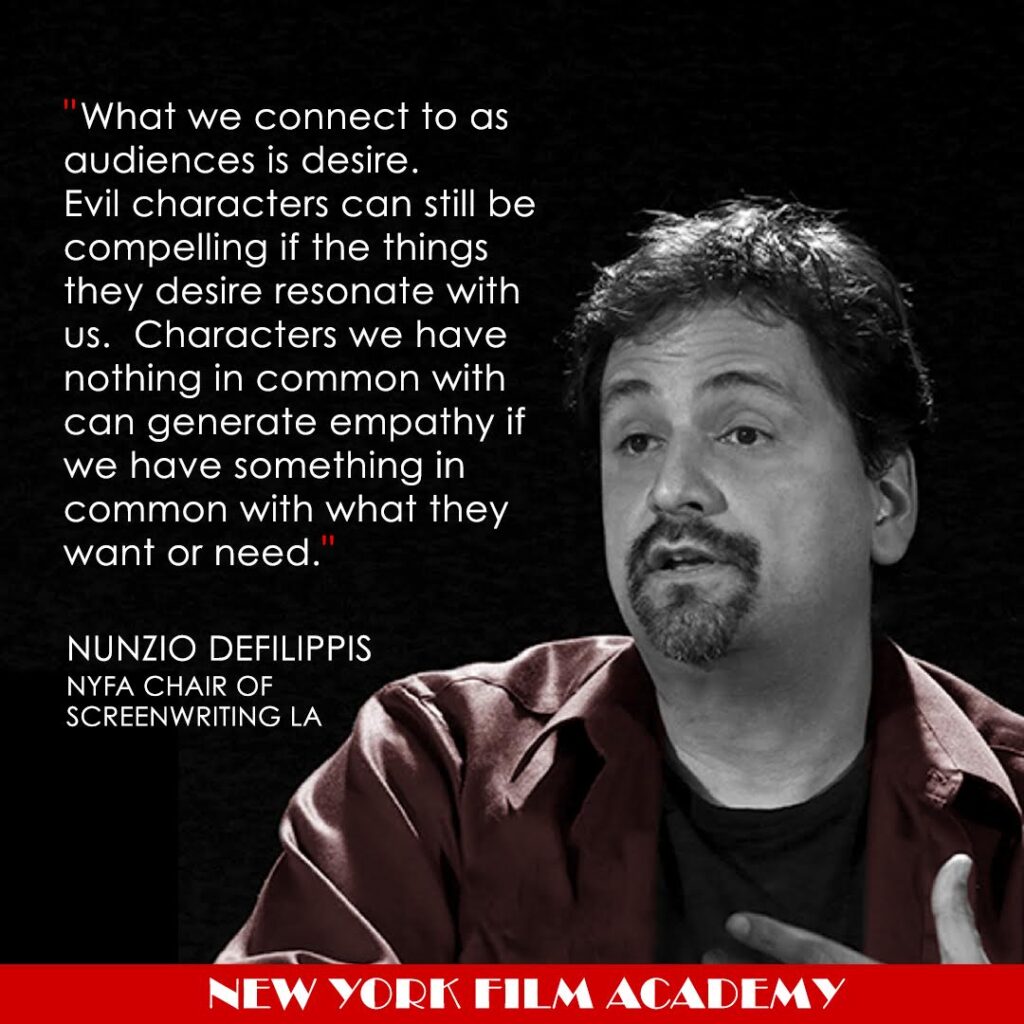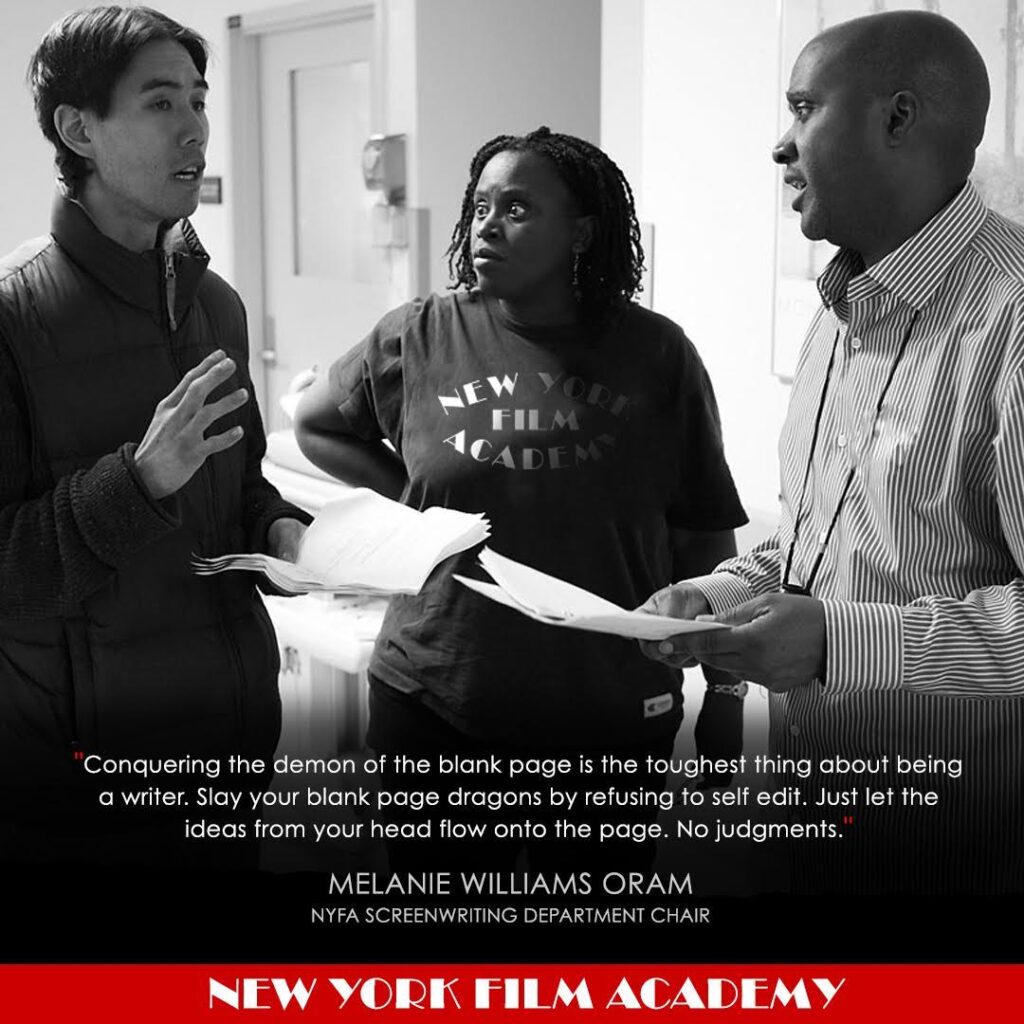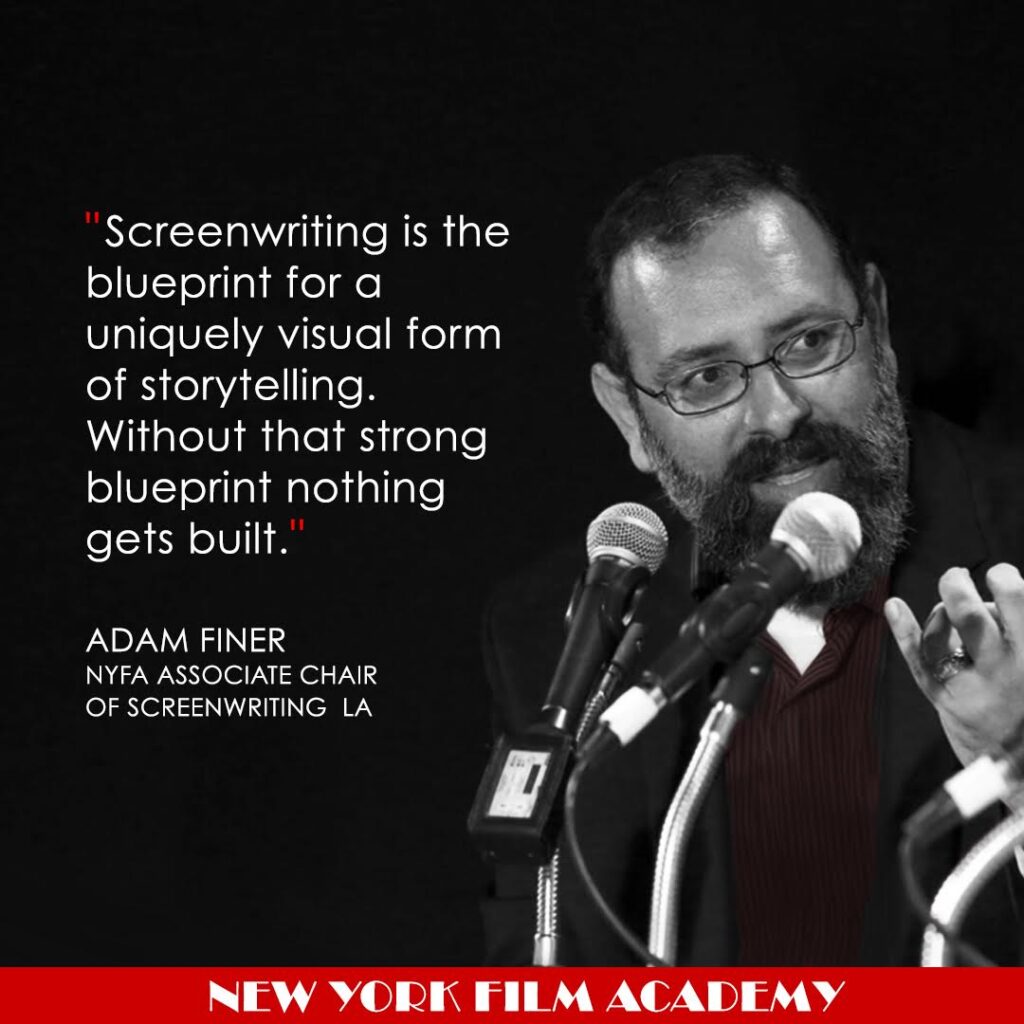In honor of International Screenwriter’s Day a few weeks ago, resident NYFA reporter Joelle Smith sat down with the New York Film Academy Screenwriting School’s three program chairs to discuss what their craft meant for them, their hopes for the future, and what students are bringing to the table. Here, read our dialogue with Melanie Williams Oram in New York City, and Nuncio DeFilippis and Adam Finer in Los Angles
NYFA: What makes the craft of screenwriting unique from all other forms of writing?
Adam Finer: Screenwriting is the blueprint for a uniquely visual form of storytelling. Without that strong blueprint, nothing gets built. Motion pictures, television series and web series all require storytellers who can visualize the world and create three-dimensional characters that drive a compelling and engaging story that can be told on-screen.
Nunzio DeFilippis: Two things make it unique. The first is that a finished script is not a finished product. It’s only meant to guide in the creation of a different finished product (a film, or TV episode).
NYFA: What inspired you to become a screenwriter?
AF: I have been working with screenwriters for nearly 20 years now, helping writers develop their material, unearth characters, discover story worlds and find their personal voices. Those are some of the things that drive me. My mission is to help creative artists, and especially screenwriters, uncover the tools and skills to achieve their goals and find success in their chosen fields.
NDF: Watching “Star Wars.” When I saw that movie (I was seven when it came out), I knew I wanted to write movies. I did have some variation — thinking I might act as well as write — but I knew from seven years old that I wanted to write, and it had to be movies.
Melanie Williams Oram: I am a screenwriter because I love to tell stories. I decided to pursue a career in film and television because I am committed to telling stories that feature women, people of color, and other minorities and that celebrate the universality in diverse experiences.

NYFA: What do you see in your students today that is new in the field of screenwriting?
AF: Our department has a strong emphasis on finding the right medium for your story. It’s one of the reasons that our degree students learn about New Media or Transmedia storytelling. Our students are being prepared for the changes in the industry and are learning to create stories in the medium that best supports them.
NDF: Younger writers don’t view the storytelling world in the same limited way that my generation did. When I went to film school, none of my classmates wanted to take classes on TV. It was beneath them, as they wrote films and only films.
Students today are drawn to TV, but even better, see themselves as able to jump between the two forms. There is some resistance to other forms of visual storytelling (like web series and comic books) at first, but only from some of them.
Many students are not only able to jump between film and TV, but they’re ready to tackle these new forms. I love their open-minded approach, and I think it serves them well.
MWO: The proliferation of digital media makes it easier for my current students to get their stories in front of an audience. In our screenwriting classes at NYFA we push students to develop unique characters that serve as the starting point to creating stories that are entertaining and that leave a powerful impact on their audiences

NYFA: What’s one thing everyone should know before starting a screenplay?
AF: Understanding screenplay structure and format are essential for people in the industry to be willing to read your scripts.
NDF: What they want the story to be about. Why are they writing it? Why is it important to them, and why are they the person to write this story?
If you don’t know the answers to those two questions, you will burn out halfway through. And the answers can’t just be “because it’s cool” or “because it’s popular right now.”
If you don’t know what you’re writing about, and if you don’t connect with it, the work of creating a feature film script (or the entire world of a TV pilot) will be too much.
MWO: Conquering the demon of the blank page is the toughest thing about being a writer. Slay your blank page dragons by refusing to self-edit. Just let the ideas from your head flow onto the page. No judgments.

NYFA: What makes a great screenplay?
AF: There are so many elements that go into a great screenplay. Well-developed and defined characters. A unique, yet relatable world (and unique doesn’t have to mean another planet, it can be a local sports story but from a perspective that’s unique). Strong dialogue that feels believable for the characters. The writer’s voice coming through in a story that they felt needed to be told.
NDF: Characters who want something, and who face real stakes if they fail to achieve it. The greatest mistake I see in students and young writers is creating characters who are apathetic and want nothing. That’s a very hard character to hang a story around.
Characters who want to be left alone have to pursue that goal as vigorously as other characters pursue their goals. And even if they do, their stories risk a lack of connection to the audience. What we connect to as audiences is desire.
Evil characters can still be compelling if the things they desire resonate with us. Characters we have nothing in common with can generate empathy if we have something in common with what they want or need.
Always build your story around this basic template: “Someone wants something and something or someone gets in their way.” Then add consequences for failing to get that something (and not always physical ones, emotional ones will do) and you’ll have a story.
MWO: People connect to stories because they are able to identify with protagonists. There’s a common misconception in Hollywood that people can only identify with film characters who look like them. I believe that films with strong stories that explore human themes can connect people across racial and gender lines. Good stories make audiences forget that they are watching a film. Good stories allow audiences to become completely immersed in the struggles and the triumphs of the protagonist.
Thank you to our Screenwriting School department chairs for sharing their insights with the New York Film Academy community! To learn more about the Scriptwriting track at NYFA click here.